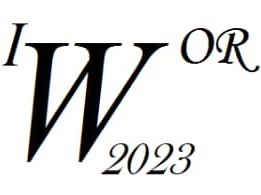Ponente
Descripción
LINEAR PROGRAMMING AND FUZZY OPTIMIZATION IN RADIOTHERAPY DECISION-MAKING
- $\underline{\text{Nicole Cristina Cassimiro de Oliveira}}$ - n235160@dac.unicamp.br;
- Aurelio Ribeiro Leite de Oliveira.
1,2 Institute of Mathematics, Statistics and Scientific Computing - University of Campinas (IMECC - UNICAMP), Campinas, São Paulo, Brazil.
Keywords: Interior Points Method. Radiation Therapy. Fuzzy Optimization.
Cancer is one of the main public health problems worldwide and is already among the four main causes of premature deaths in the world. Most cancer patients are treated with radiation. This treatment uses a source of ionizing radiation that destroys the tumor cells, in which it is possible to vary the intensity of the radiation fluence and the radiation beam can be shaped in such a way to radiate only around the tumor. Computed tomography scans are performed in order to define the target volumes and organs at risk, and then define the patient's treatment plan, in which sufficient amounts of dose are prescribed for the tumor to cure, while minimizing the inevitable dose to the other regions. The prescription is normally made by the oncologist, which may be associated with uncertainties such as the physician's experience, internal movement of organs and the probability of tumor control. Therefore, the dosage values are considered as fuzzy numbers. In this context, the dose distribution problem in radiotherapy planning translates into a fuzzy optimization problem in which mathematical programming techniques are used for the solution. Fuzzy constraints are mathematically translated by the surprise approach. The proposed methodology was applied in several cases of cancer using the TROTS database. The results obtained are compared by means of Dose-Volume Histograms and contour graphs and dose surface. In conclusion, the approach using fuzzy numbers produced viable treatment plans, inferring that the model is an important tool in decision-making in the planning of radiotherapy treatment.

